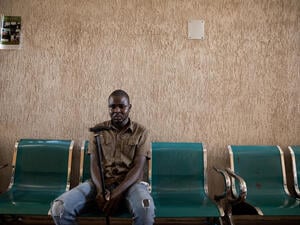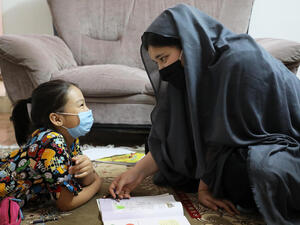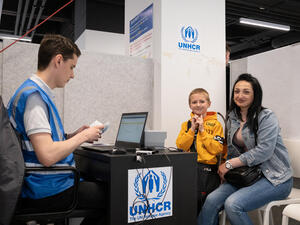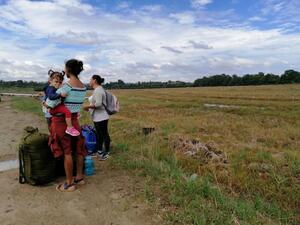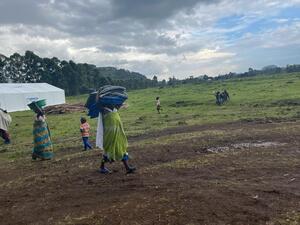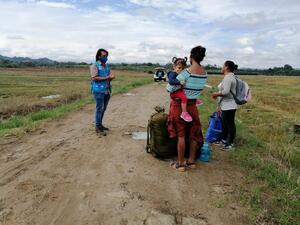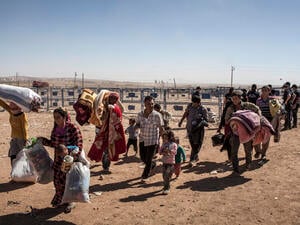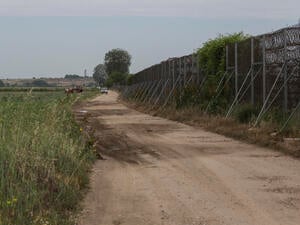Asylum in Hungary: Crisis averted but challenges emerging
Asylum in Hungary: Crisis averted but challenges emerging
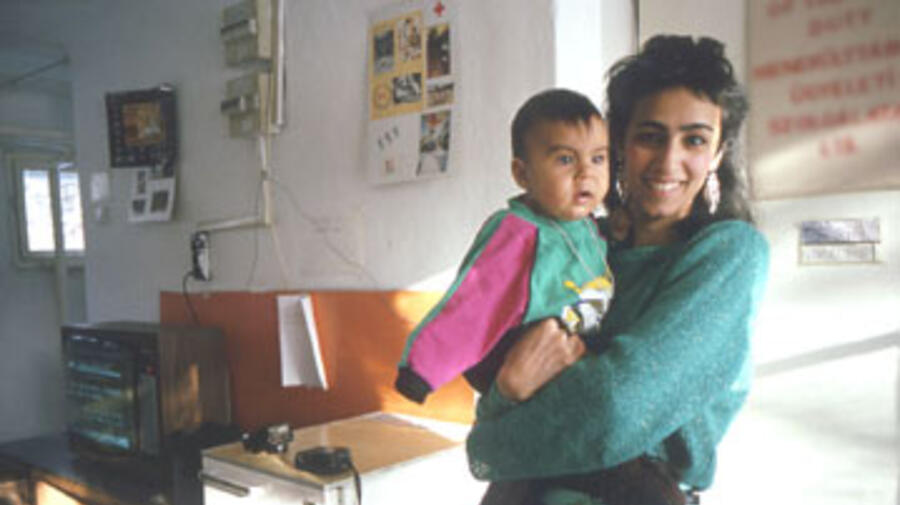
Refugees at a reception centre in Hungary face mounting challenges in employment, housing, health care and education.
BUDAPEST, Hungary, May 18 (UNHCR) - When Hungary joined the European Union in May last year, it expected a surge of people seeking asylum. While that fear has not materialised - the number of asylum claims has plunged instead - other challenges have emerged for refugees and asylum seekers in the country.
Some 400 people have applied for asylum in Hungary so far this year, a low number compared to other new EU states like Slovakia and Poland. At its peak in 1999, 11,500 asylum applications were filed in Hungary - mostly from the former Yugoslavia - but that number has been declining steadily since 2002, falling by 86 percent to 1,600 applications in 2004, the lowest in recent years.
Hungary is located in the heart of Europe, at the crossroads of migration routes connecting north, south, east and west. But in recent years, it seems that people have stopped using it as a transit country to the more developed west.
"The routes used by smugglers have been pushed up north of Hungary, as our capacity of monitoring the external EU borders has been significantly strengthened," says László Balázs, Head of the Aliens Policing Department of the Hungarian Border Guards Headquarters. "In recent years, we've received €63 million worth of new vehicles, infra-red cameras and computers from the EU, and our staff participated in a number of trainings. As a result, we are capable of efficiently combating illegal migration into Hungary."
While the impact of tightening border controls remains debatable, this approach has made it more difficult to maintain the balance between curbing illegal immigration and providing protection and assistance to all refugees in Hungary. Despite the fall in asylum claims in Hungary, new challenges have emerged for asylum seekers, refugees and aid agencies responsible for protecting them. These problems require much more sophisticated and complex solutions than the simple provision of shelter and relief aid that were crucial in large-scale refugee emergencies like the Balkans conflict.
Part of the problem is due to the changing asylum patterns over the years. When the number of asylum seekers was high, many of them left Hungary before their refugee status was determined. Since then, the average duration of stay in the country's state-run refugee reception centres has increased from 60 days in the late 1990s to more than 220 days today. The authorities must thus consider long-term solutions instead of the short-term care and maintenance of previous years. Moreover, asylum seekers who are granted refugee status are increasingly staying and integrating in Hungary rather than moving elsewhere.
As a result, the need for education, employment, language training, housing and health care for refugees has increased significantly. If refugees do not have access to education and employment, the risk of them becoming further victimized by human smugglers and traffickers rises dramatically. Staying in the country despite the difficulties is a real challenge for most of them.
"It's very difficult to be a refugee in Hungary," said Yahya Al-Jubery*, 24, a recognized refugee from Palestine. "If it wasn't for my three-year-old son who I don't want to run around with, I would have left the country for a place where I have better chances of establishing myself."
He explains, "I've been here for more than a year now and I still haven't found a job. Employers are not willing to take me as I don't speak Hungarian. But as an upholsterer, I don't need the language to do my job. I'm supporting myself through odd jobs and physical labour, but it's not easy being a single parent with a small child."
Refugees who move out from the reception centres to private apartments receive some 12,000 Hungarian Forints (US$60) from the Office for Immigration and Nationality (OIN, the government office responsible for refugee matters) in living costs and 6,000 Forints from the state as child allowance. However, the minimum cost of living per person can be as much as 80,000 Forints per month, so refugees desperately need to work to survive. They are not eligible for unemployment grants, which requires at least one year of continuous legal employment in the country. It is a vicious circle, and the only way out may be through informal networks, personal contacts and individual resourcefulness.
Abu Sule*, a 34-year-old refugee from Sierra Leone, survives through small trading, odd jobs and the occasional cash support from friends abroad. Asked why he is staying in Hungary despite the difficulties, he says, "I have been here for seven years. I have no family back in my country and I have had enough of running away. I plan to stay in Hungary as I feel safe here, even if my dream of living a normal life is still very, very far away."
Life is not much easier in the refugee reception centres. OIN has been forced to reduce the number of social workers, even though the number of recognized refugees staying longer and requiring more daily support for their integration has increased three-fold.
OIN is overstretched and underfunded. "Despite the funding constraints, OIN now has to face the enormous challenge of setting up a general national integration strategy which would recognize and aim to solve the many disadvantages that refugees and persons benefiting from subsidiary protection face in Hungary," says Dr. Agnes Garamvölgyi, OIN's Director of Refugee Affairs.
One positive development is that various EU sources are helping to fill gaps in the funding of asylum and integration projects. The EU is now financing a 15-month twinning programme on refugee integration, allocating €750,000 to projects in Greece and Hungary. The European Refugee Fund (ERF) has also distributed a total of €825,000 for 20 projects in care and maintenance, integration and voluntary repatriation.
However, there are two major shortfalls. Organizations applying for ERF funds have to provide 25 percent in matching contributions, which most of them cannot afford. Most of the projects are funded for a short period of between six and 10 months; even the most successful projects are not guaranteed continuation.
As a result of these changing operational realities in Hungary, UNHCR has adjusted its strategy and activities. "When UNHCR first began its work here, we were dealing with major refugee influxes from Romania and then later from the former Yugoslavia. We had large budgets and many implementing partners," says Lloyd Dakin, UNHCR Regional Representative based in Hungary. "When these situations stabilized, we shifted our attention to developing and building the capacity of the Hungarian asylum system."
He adds, "Now, with the national asylum system largely in place and functioning better every year, UNHCR is turning its attention more and more to the need for refugee integration, which requires new types of cooperation with governmental and non-governmental partners as well as the EU and other international organizations."
According to Dakin, the greatest challenge ahead for UNHCR and its partners is to ensure effective practical solutions and assistance to refugees in Europe amid overheated political debates on immigration and refugees. The genuine needs of refugees, he says, should not be allowed to fall victim to the unfounded negative public opinion or the very system that is designed to assist them. Refugees in Europe not only need, but deserve real, practical solutions to their plight. In the absence of such solutions, they will be endangered by social marginalization, deprivation, and their presence in the countries hosting them will not be seen as an asset, but as a burden.
* Names have been changed to protect refugees' identities.
By Andrea Szobolits
UNHCR Hungary

